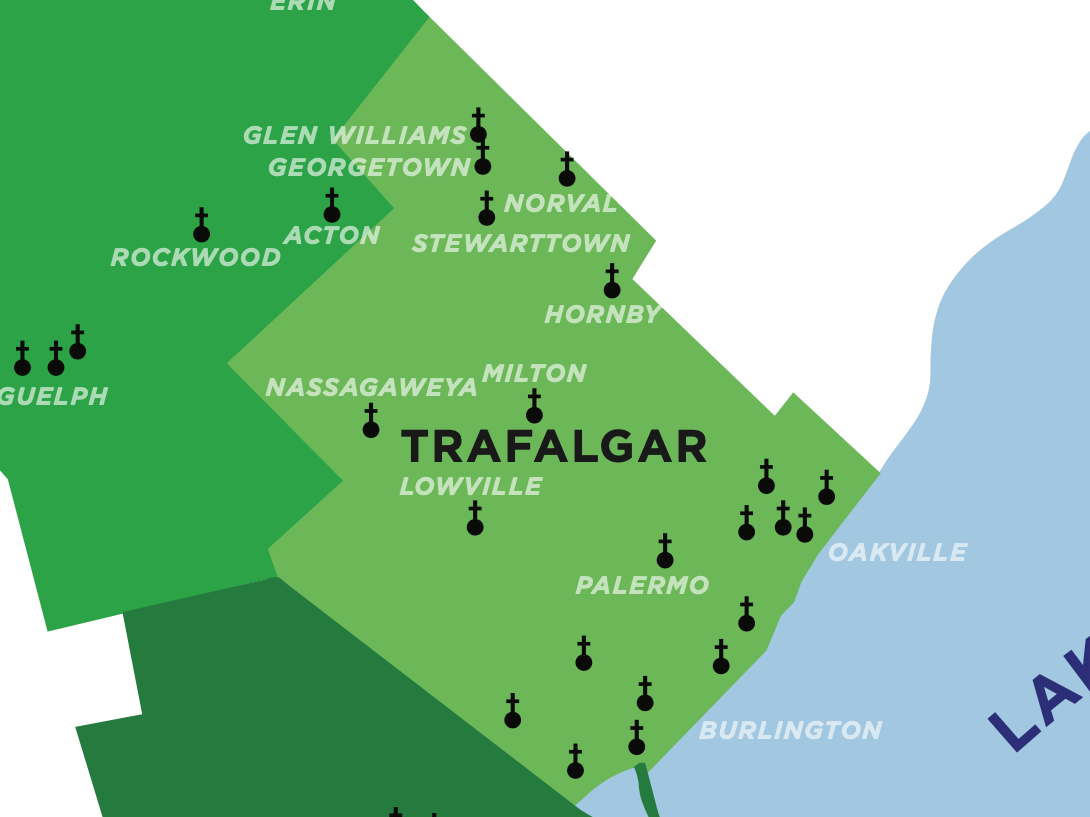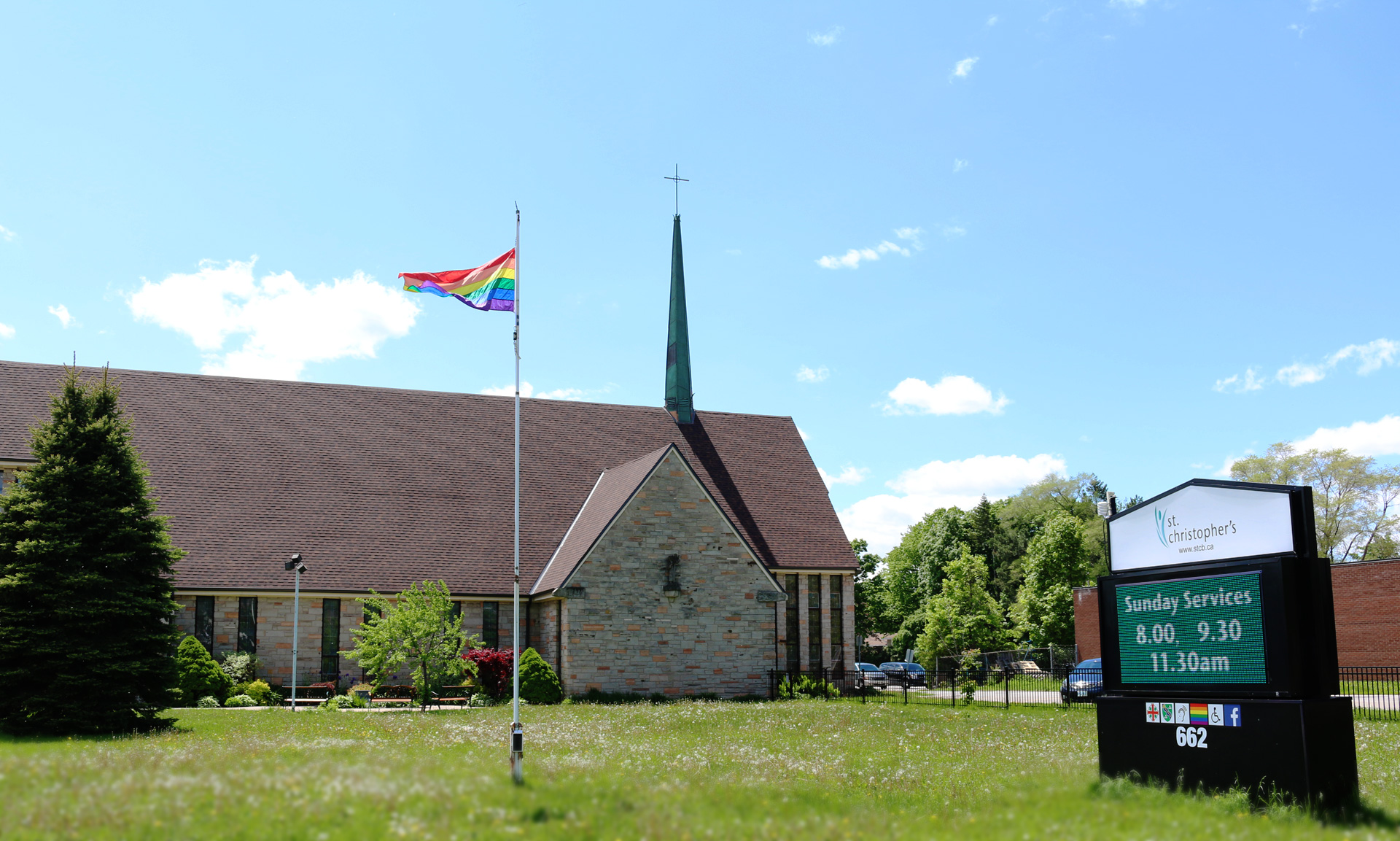In addition to passing the Synod motion “Reduction of Single Use Plastics” at its February 23rd vestry meeting, St. Christopher’s changed its site use agreement to require site users to sign a statement that they will not provide or sell plastic bottled beverages at any events based at St. Christopher’s. The same practice will be followed at Open Doors and for St. Christopher’s own hospitality. As Christina Mulder, Director of Programs and Partnerships for Open Doors, said, “It’s a challenging proposition and it does make us a little uncomfortable but it’s the right thing to do. Will it be hard? Yes. Can we do this? Absolutely!”
As the parish works to connect the St. Christopher’s vision and the Mission Action Plan, the liturgy for Lent is based on the renewed parish vision themes which are closely aligned with the MAP. At the beginning of each Sunday worship service, a lay person will articulate what St. Christopher’s means to them in their faith journey and in how that faith impacts their daily life.
The Lent sermons will echo this as preachers address Jesus and…
- His temptations
- Living the faith and nourishing living
- Engaging all people through relationships
- Caring for creation/environments
- Stewardship and sustainability through discipleship
- His triumphant entry into Jerusalem
- Responding to God
As The Reverend Hollis Hiscock, Priest-in-Charge, says “we want the vision to be wrapped in worship and aligned with the diocesan vision.” This liturgical focus is enhanced by twenty-two avid disciples engaging in a book study focused on the bishop’s book for Lent; Inspired: Slaying Giants, Walking on Water and Loving the Bible Again.
The St. Christopher’s community is excited to immerse themselves this Lent in how they are Called to Life, Compelled to Love!
Welcome to Trafalgar Region

The Region of Trafalgar is basically Halton Region and Waterdown. This is the area sandwiched between Hamilton and Mississauga/Brampton and from Lake Ontario in the south to almost Guelph. We embrace the communities of Georgetown (including Glen Williams, Norval, Hornby, Stewarttown), Milton (including Lowville and Nassagaweya), Oakville, Burlington, and Waterdown. There are 21 churches of varying sizes and ages. Halton Region has experienced heavy population growth for more than two decades and it has been projected this will continue for at least another decade.
The current population is approaching 600,000. This is a bedroom community for thousands who daily commute to Toronto for work, filling many GO Trains and associated parking lots and clogging the QEW/403 and 401 highways.
The region has transitioned over time, from a predominantly British, United Empire Loyalist, concentrated set of very separate communities, to interconnected and extremely diverse communities. This has led to many changes of our parish communities; the boundaries, the languages, the food, and the culture, have all become broader and richer.
We may still hold some traditions of worship and ritual events, but we now have many food and music festivals featuring a variety undreamt of only one generation ago. We are home to many newcomers to Canada, including many refugees. We are, whether we like it or not, learning to reach out to people who have no experience in Anglican churches or faith communities of any kind.
All of this is forcing us to rethink how we are church, even in very entrenched parish communities. Mostly, it is forcing us to learn how to communicate our faith to our new neighbours in ways that we didn’t need to in the past. We can no longer take for granted that everyone we meet in the grocery stores, or coffee shops, or parks, or by the lake, even know what we mean when we say the word “church”. We are learning to introduce ourselves, our church, and our faith to people with zero knowledge or experience of Christ or the Anglican church.
We have parishes begun in the 18th, 19th, and 20th centuries and new mission ministries begun in the 21st. We have embarked on efforts of trial and error, seeking to find new (hopefully effective) ways to share who Christ is to us and how it can enrich the lives of others.
This has offered us new challenges for explaining and encouraging the stewardship of time, talent, and treasure.
- for some we are place where they can learn new languages, culture, traditions
- for others we are a place to meet neighbours, learn how to paint, or write, or dance
- and for others we are a place to get help learning how to navigate life in a new land and obtaining the essentials of life, such as food, clothes, and caring for our families even during climate emergencies.
Our region is definitely a field of challenge and opportunity; a place to truly exercise the potential of our new diocesan vision and mission action plan.

Resurrection of Hope in Thundering Waters